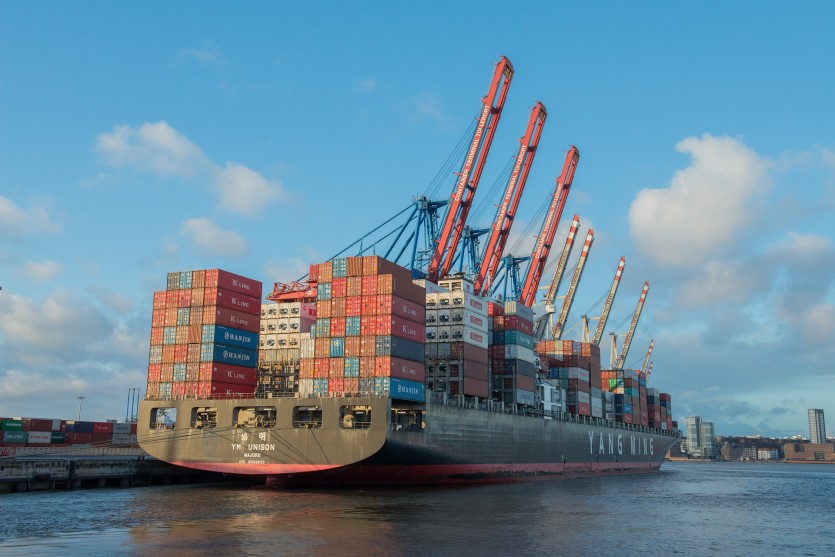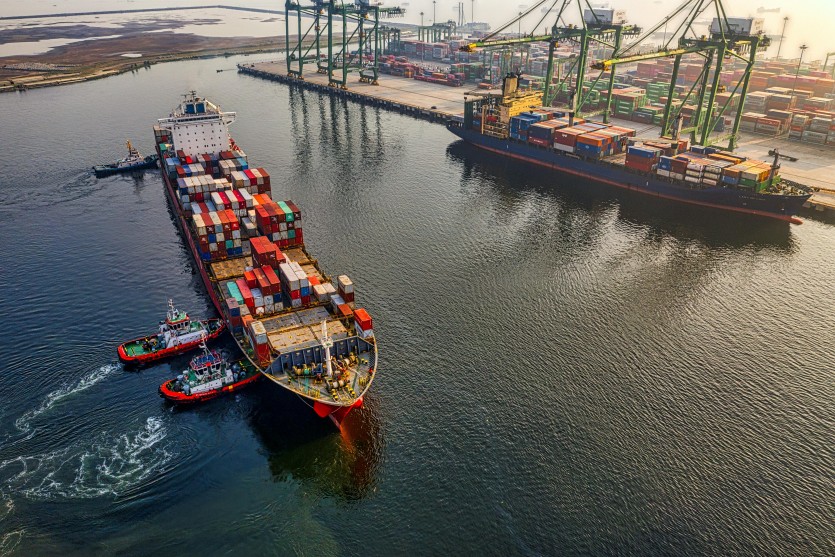Required Registration Procedure for Exporting to China
Page Information

Contents
Required Registration Procedure for
Exporting to China
China is one of the largest markets globally, offering abundant business opportunities across various industries. Particularly for South Korea, China stands as one of the top five export destinations, emphasizing its significance in trade.
Recent trends indicate a growing interest among Chinese consumers in Korean food products, leading to expanding export opportunities for small and medium-sized enterprises in the Chinese market.
China is one of the largest markets globally, offering abundant business opportunities across various industries. Particularly for South Korea, China stands as one of the top five export destinations, emphasizing its significance in trade.
Recent trends indicate a growing interest among Chinese consumers in Korean food products, leading to expanding export opportunities for small and medium-sized enterprises in the Chinese market.
However, exporting products to China requires strict adherence to Chinese customs procedures and regulations. This adherence can pose challenges and obstacles for exporting companies, necessitating thorough preparation and sometimes facing hurdles along the way.
Furthermore, while China offers tariff benefits through Free Trade Agreements (FTA), it is also known for its numerous non-tariff barriers, such as Technical Barriers to Trade (TBT),
which hinder the free flow of goods through the application of differing technical regulations, standards, and conformity assessment procedures, etc between nations.
Therefore, it is essential for companies aiming to enter the Chinese market to have a thorough understanding of China's export procedures and mandatory certifications and to prepare accordingly.
1. Chinese Food Export
Chinese Factory Registration (Registration of Overseas Production Companies)
Since 2022, the Chinese government has expanded the scope of registration for overseas food production companies to include all overseas production companies. Therefore, all food production companies want to export can export food to China after completing factory registration.
It is crucial to note that, based on Chinese customs requirements, the evaluation methods, export procedures, and timelines may vary, so companies must always check for the latest information and respond promptly.
1) Applicable Products
• All food production companies outside China
2) Exclusions Products
• Food additives
• Food packaging materials
• Food containers
• Detergents
• Disinfectants and products related to food production such as equipment and tools
• Processed storage facilities
3) Conditional Registration items
Meat and meat products, casings, aquatic products, dairy products, nests and nest products, bee products, eggs and egg products, edible fats and oils, stuffed pasta, edible grains, milled products and malts, preserved and dried vegetables and dried beans; Condiments, nuts and seeds, dried fruits, unroasted coffee and cocoa beans, special dietary and health foods
The above 18 items may require additional audit upon registration.
4) Procedure
• Submit application and required documents
• Customs review or review;
• Completion and registration number given
2. Exporter Registration
In accordance with Article 96 of the Food Safety Law of the People's Republic of China, food/cosmetic manufacturers and distributors wishing to export to China must register with the Chinese customs system (Single Window) to ensure that their products comply with Chinese national standards and relevant laws.
1) Applicable Products
• Food Products for export to China
2) Procedure
• Submit application and required documents
• Customs review and review
• Completion and registration number given
3. Preparation of product and export materials
According to the Food Safety Law of the People's Republic of China, Chinese food is classified into general, special or health foods.
While general processed foods can be exported through regular procedures, certain product categories such as seafood/meat may require specific procedures, necessitating prior review before proceeding.
1) Applicable Products
• General processed foods produced domestically (other than functional and other foods)
2) Procedure
• Registered as an overseas production company/exporter
• Submission of export documents
• Product loading and departure
• Entry into China and customs inspection
• Shipping and transportation within China
4. IGC’s Competency
Exporting products to China requires an understanding of the correct export procedures and required certifications. Additionally, ensuring product quality and safety is very important. In this process, IGC Certification Center responds quickly and professionally to various customer needs.
IGC has a thorough understanding of all procedures and certifications required for export, and provides essential information and know-how to enter the Chinese market. We are committed to helping our customers sell their products successfully in the Chinese market.
IGC Certification Institute has earned the trust of customers based on its high level of expertise and experience, and has the ability to achieve successful business in the Chinese market.
If you have any questions, please contact us at the following email address.
E-mail: info@igcert.org
Exporting products to China requires an understanding of the correct export procedures and required certifications. Additionally, ensuring product quality and safety is very important. In this process, IGC Certification Center responds quickly and professionally to various customer needs.
IGC has a thorough understanding of all procedures and certifications required for export, and provides essential information and know-how to enter the Chinese market. We are committed to helping our customers sell their products successfully in the Chinese market.
IGC Certification Institute has earned the trust of customers based on its high level of expertise and experience, and has the ability to achieve successful business in the Chinese market.
If you have any questions, please contact us at the following email address.
E-mail: info@igcert.org
Comment list
There are no registered comments.





